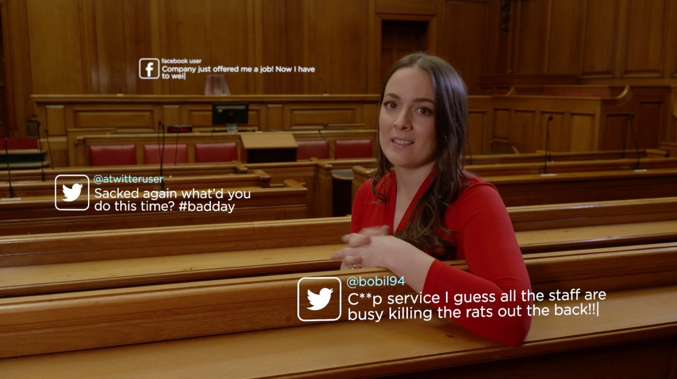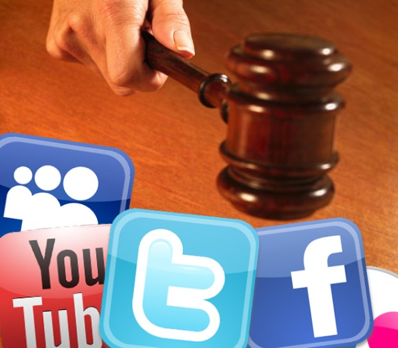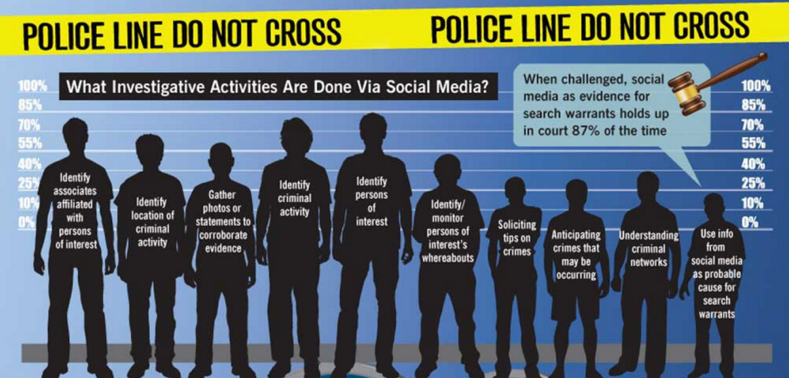Social media has changed the way we communicate and live. We feel the need to document our entire life, from our child’s first day of school, to details of our family vacation, and even what we ate for dinner. Most of us assume our posts are completely innocent, but nowadays social media has become an extraordinary source of evidence. Our digital footprint grows daily with every photo posted, status updated and video shared. These footprints are hard to erase.
Yesterday’s status update can easily become evidence in future litigation. This is especially true in criminal, family, personal injury and employment law. The practice of law and the ability to access information relevant to a case has been noticeably impacted by the internet. Furthermore, the rise of social media has given everyone with an internet connection the ability to receive, send, and store information in numerous formats.
So how does this storage and sharing of information on personal social media accounts can play out in a legal case?
Private Posts Are Not Always Private
Social media users utilize their privacy settings in different ways. Some people may have private Instagram and Facebook accounts but a public Twitter account. Or they may have a private Facebook account and public Instagram. Different platforms allow users to fine tune exactly what they want other followers, users, or browsers to see.
But just how much privacy do you actually have? Limiting a photograph you post to a specific audience is more private than making it public. But do you really have an expectation of privacy when you post to hundreds of “friends”, even with your privacy settings activated?
Police in Jacksonville, Florida, utilized social media in an investigation called Operation Rap Up. Numerous alleged gang members were arrested for illegally possessing weapons, which is prohibited for people with felony records in the state. The sheriff told media that at least some of the evidence had come from YouTube videos posted by the accused.
More and more, police are increasingly turning to the internet to gather evidence about suspects, and this material is being used in civil suits, ranging from divorces to personal injury claims. If you file suit claiming that an injury sidelined you from professionally playing basketball, yet later post pictures of yourself shooting hoops, as the defense argued in a recent New York case, the court will more than likely give the opposition access to your devices for more potential evidence.
There are numerous methods of capturing this evidence.
1) Print
When police, lawyers, or investigators observe something on social
media in real time, they capture it immediately. There’s always a chance posts,
photos, and tweets will be deleted so grab them while you have the chance. By
printing the web page or social media post, you have a date and time stamp in
case the evidence is deleted.
2) Screenshot
A better method of preserving social media evidence is to capture
a screenshot or screen picture. Essentially, you’re using
software to take a photo of what’s viewable on the display.
3) Software and tools built to preserve
While printing
or saving a screenshot preserves what you see, screenshots lack the
behind-the-scenes information (called metadata) that’s embedded into the
webpage or post. Police, investigators, and the like can now utilize software
built specifically for collecting and preserving online and social media
content. These tools log the accurate visual representation of the content as
well as all available metadata such as date, time, location, poster’s IP
address and browser used. All content can be digitally signed and time-stamped
in satisfaction of the legal requirements for submitting digital content as
evidence.
As people increasingly share their lives online, the incredible amount of
content will continue to grow and often be relevant to
litigation. And most courts are happy to allow this evidence. Judges have been generally
receptive to granting law enforcement warrants to obtain social media records
to use against them for an arrest or in an existing case against them. Facebook maintains a portal for law enforcement to
request evidence associated with an official investigation. Twitter has
codified a detailed set of guidelines for law enforcement requesting and obtaining
such evidence. YouTube, Google, and WhatsApp have done the same.



